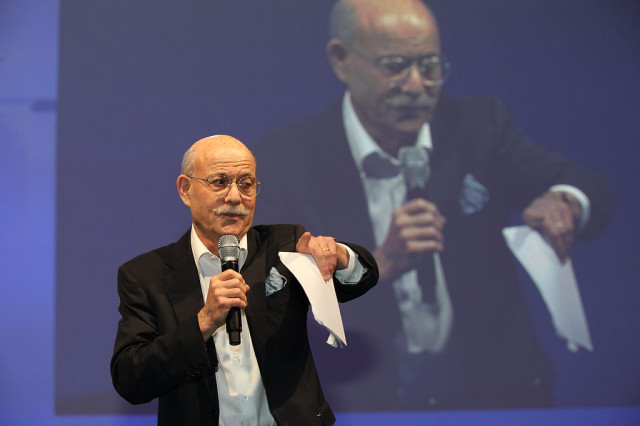Capitalism as we know it is going to disappear, according to Rifkin

An old joke attributed to Winston Churchill says that if you put two economists together in a room for five minutes, two opinions will come out, unless one of them is John Maynard Keynes, in which case there will be three different opinions. If today two different people are asked what they think of Jeremy Rifkin, something very similar happens, except that the chances of three very extreme views are very high.
Rifkin (USA, 1943) is one of the most influential voices in the world. He writes in the mainstream media, his books sell like hotcakes, he fills auditoriums, and political leaders on three continents scramble to invite him to his table. For years, he was an adviser to Zapatero, and even today, despite the time that has passed, he attacks Mariano Rajoy without having to be asked for stopping investment in renewables.
Economist and social theorist, he gives lectures around the world talking about The Third Industrial Revolution and The Zero Marginal Cost Society (Paidós), the work that he has come to Madrid to present invited by the Rafael del Pino Foundation. A world where manufacturing is increasingly cheaper and where 3D printers will turn hundreds of millions of people into prosumers, a mix of consumers and producers unprecedented in history.
In 2007, Angela Merkel called him in for consultation. Francois Hollande, too. And the support of the Chinese premier, Li Keqiang, has led him to sell half a million copies of an impassioned defense of a post-carbon world. But big business hates him for his fierce criticism of fossil fuels, and among his peers, the economists, the criticism is harsh.
He earns millions as a consultant, but his texts, long, full of ideas, names, references and hypotheses, overflow with confusion. "He sells motorcycles, but he sells them very well," they say. A mixture of Paul Krugman and Paulo Coelho that reaches directly to the nuclei of power and enters the vein of those who rule.
Rifkin believes that capitalism, as we know it, is not going to disappear, but that it is already doing so. That in 2050, less than two generations, it will be something much closer to the collaborative economy than to the search for self-interest. That the old paradigm of Adam Smith has been dismantled and will be replaced when they come to power, economically, politically and culturally, the generation that has been raised after Napster, accustomed to sharing everything on the Internet.
The world of the future, he assures, will be better and more sustainable because we will collaborate in search of the common good not to combat scarcity, but to generate prosperity. He says he is not a utopian and points out that sharing and collaborating will not fix all problems. He swears and perjures that he lives in the real world, but the 21st century that Rifkin draws in his work is rosy. As long as you pay attention to the letter.
Comentarios